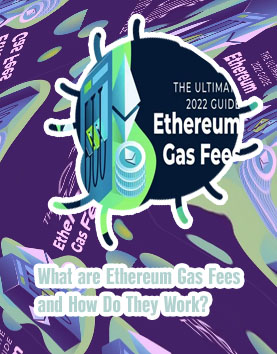Navigating the complexities of ether gas costs can be a daunting task for many cryptocurrency users. Understanding how these costs are determined and how they can impact your transactions is crucial for successful participation in the Ethereum network. To help shed light on this topic, we have compiled a list of three informative articles that will provide valuable insights into managing ether gas costs effectively.
Maximizing Efficiency: Tips for Reducing Ether Gas Costs

As cryptocurrency continues to gain popularity, users are constantly seeking ways to optimize their transactions and reduce costs. One of the key considerations for Ethereum users is minimizing gas fees, which can significantly impact the overall expense of using the network. By implementing some key strategies, users can maximize efficiency and reduce their Ether gas costs.
-
Choose the Right Time: Gas prices on the Ethereum network fluctuate depending on network congestion. By monitoring gas prices and selecting times when network traffic is lower, users can save on transaction fees.
-
Optimize Gas Settings: When sending transactions, users can adjust gas settings to ensure they are not overpaying for fees. By using tools like gas trackers, users can set appropriate gas limits and prices to optimize cost efficiency.
-
Batch Transactions: Instead of sending multiple transactions individually, users can batch their transactions to save on gas fees. By bundling multiple transactions into a single batch, users can reduce the overall cost per transaction.
-
Use Layer 2 Solutions: Layer 2 solutions like zkSync and Optimism offer alternative scaling solutions that can significantly reduce gas costs for Ethereum transactions. By utilizing these solutions, users can enjoy lower fees and faster transaction times.
-
Consider Alternative Networks: In addition to Layer 2 solutions, users may also consider
The Economics of Ether Gas Prices: What You Need to Know
Today we're going to talk about the economics of ether gas prices and why it's important for anyone involved in the world of cryptocurrency. Gas prices on the Ethereum network play a crucial role in determining how quickly transactions are processed and how much it will cost users.
Gas prices are influenced by a variety of factors, including network congestion, the complexity of the transaction, and the current price of ether. When the network is busy, users will need to pay higher gas prices to ensure their transactions are prioritized by miners. On the other hand, when the network is less congested, gas prices tend to be lower.
Understanding the economics of ether gas prices is essential for traders, investors, and developers alike. Traders need to factor in gas prices when making decisions about buying and selling ether, as high gas prices can eat into their profits. Investors should also consider gas prices when evaluating the long-term potential of the Ethereum network.
For developers, gas prices are an important consideration when building decentralized applications on the Ethereum network. Writing efficient code can help reduce gas costs and make applications more cost-effective for users.
In conclusion, the economics of ether gas prices are a crucial aspect of the Ethereum network that anyone involved in cryptocurrency should be aware of. By understanding how gas prices are determined and how
Strategies for Optimizing Ether Gas Fees in Your Transactions
Gas fees refer to the amount of Ether <a href"/">Bitcoin news required to successfully execute a transaction on the Ethereum network.

